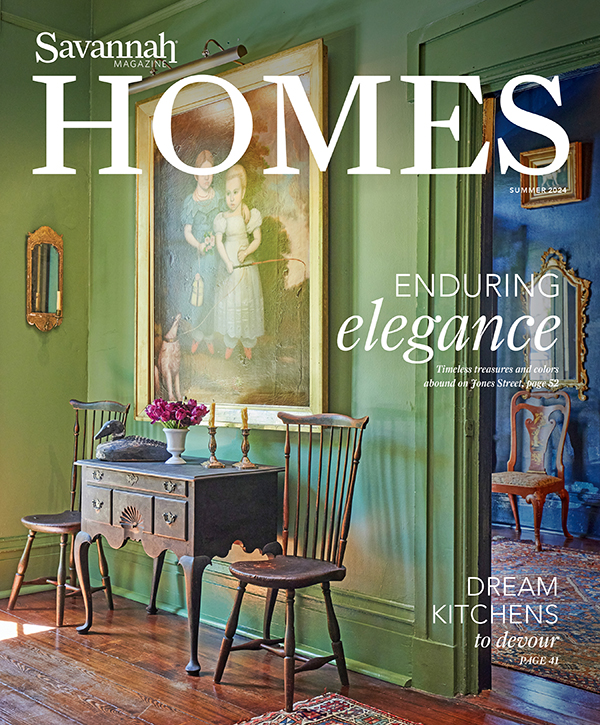It isn’t just a health issue — it’s a quality of life issue
Up until last week, I believed that my Granddaddy Archie had lost his hearing due to the 37 years he worked as a mechanic — that the constant roar of power tools and influx of noise gradually wore away whatever internal pillows or membranes cushioned the sounds that came to him. When he spoke, it was loud and warm like summer thunder, his Southern accent thick and palpable.
I have vague memories of leaving voicemails on his machine, the phone operator asking me to phonetically spell my name: S as in snake, Y as in yak, and so on. There would be a flurry of clicks and beeps and, in the great technological age that was the early 2000s, my voicemail would translate into blocky letters that ticked across Grandaddy’s answering machine. This is how we communicated.
My grandaddy grew up in an orphanage in the 1930s, a time when three to four million people a year contracted the measles virus. He, like many others, suffered from encephalitis — a swelling of the brain and a complication of measles — that resulted in permanent nerve damage. Gradually, by the time he reached his twenties, he became completely deaf.
“Hearing loss isn’t just a health issue,” Dr. Susan Timna says. “It’s a quality of life issue.”
I’m standing in a dark room at the Savannah Audiology and Hearing Aid Services’ office. Timna has shepherded me from the brightly lit lobby, decorated with paintings of disembodied ears and anatomical posters reminiscent of a high school biology class, and right into the action.
“People need to think about their health,” Timna says. “Because hearing is a health issue. It’s linked to diabetes, to higher risk of falls, to cognitive decline.” She hands me a thick folder brimming with articles and pamphlets. “Read those.”
People with diabetes are twice as likely to need a hearing implant. Those who are hard of hearing have a less secure sense of their surroundings and, consequently, a three times higher risk of falling. The extra processing time required when hearing impaired induces dementia earlier. All of these factors result in feelings of isolation and strain on relationships.
I’m ushered down the hall and directed to a folding chair outside of a consultation room. Inside, through the closed door, Timna, her patient, Jared, and a hearing aid representative named Ellen Williams talk about Jared’s situation. The irony isn’t lost on me that I’m being forced to rely exclusively on my sense of hearing — there wasn’t enough room in there for me — to take notes.
I sit outside the consultation room for the better part of the hour. I learn a lot about Jared. He bikes 15 miles every day. He’s long retired and enjoys golf. His wife, Tammy, is a jokester and Jared is more soft spoken. They go to church every Sunday. He and Tammy have matching recliners in the family room, and their favorite show is Downton Abbey. It’s frustrating for Jared to juggle conversation and television.
“I can’t really make it out when she talks with the television on,” Jared says. “I feel like I’m missing out.”
For each 10-decibel drop in hearing sensitivity, the odds of social isolation among 60- to 69-year-olds increases by 52 percent. Timna explains to Jared that it’s easy to want to stay home more when you can’t hear as well, easy to communicate less because you don’t always want to say, “What?” These are factors that affect relationships.
Down the hall, I hear an older woman’s trilling voice drift out of another consultation room. She speaks so loudly that I’m confident the entire office (and the one next door) can hear her. “I wanna be able to hear my grandbaby talk,” she says. “He’s not talking yet.”
She gingerly shuffles out of the room, a spritely blonde woman guiding her by the arm, and up to the front desk to pay. She notices me watching and flutters her fingers in my direction, a smile blooming on her face. Hearing loss really does have consequences.
Luckily for us — and our loved ones — hearing aids greatly reduce the risk of isolation or depression. Hearing aids help people re-establish control over their lives, sharpen cognitive function, diminish anxiety and ultimately bring families closer. At Optimal Hearing Systems, Dr. Gabe Pitt witnesses these benefits first hand. “Hearing aids can drastically improve the quality of life for both the hearing impaired and their loved ones,” Pitt says. “I see it every day.”
Lisa, a long-term patient at Optimal Hearing Systems, says, “My husband thanks you — he thinks he’s getting the best deal since he doesn’t have to shout any more. I can finally hear and experience all the sounds I’ve missed for so long.”
Another patient, an Air Force veteran named Hoyt, began to notice a decline in his hearing a few years after retirement. His wife grew frustrated and their communication ebbed. Watching television, a favorite pastime, became impossible for Hoyt. “I finally arranged for a hearing test,” he said. “Not only am I hearing, but I have a happy wife now!”
After learning the repercussions of hearing loss, I called my dad to ask what it was like growing up with a deaf parent. In true Dale Baggett fashion, his answers were curt and without decoration. “Communication was short and to the point,” he says. That explains a lot. “Archie took us to basketball and baseball games. We lived a totally normal life.”
I ask if he wished Granddaddy Archie had been capable of hearing. “Not really, no. It’s all I ever knew.” There’s a pause, then he says, chuckling, “When my siblings and I asked if we could have ice cream, he’d say ‘Just one scoop!’ We’d pretend we couldn’t understand him and eat the entire gallon.”
This, too, explains a lot.


